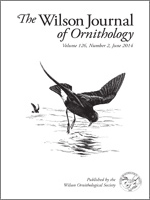Amami Thrushes (Zoothera dauma major) are endemic birds distributed on Amami-Oshima Island in southwestern Japan. The population is considered to have declined during the latter half of the 20th century, mainly because of deforestation. I investigated the breeding habitat of Amami Thrushes in order to contribute to conservation efforts for these endangered birds. Field surveys showed that the thrushes prefer old-growth broad-leaved forests for breeding habitat. Both male and female parents cared for the nestlings, and most food items delivered for nestlings were earthworms, which were more abundant on the forest floor in older forests than in younger forests. Nests were placed on forks of large tree branches, rock ledges, and epiphytic ferns in middle to low strata of the forest. Older forests contained more large trees than younger forests, and epiphytic ferns were distributed in old-growth forests. The thrushs' preference for old-growth forests as breeding habitat was explained by the abundance of food and nesting resources in that environment. These results suggest that the preservation of old-growth broad-leaved forests should be given top priority if Amami Thrushes are to be protected.
How to translate text using browser tools
1 June 2014
Habitat requirements of the endangered Amami Thrush (Zoothera dauma major), endemic to Amami-Oshima Island, southwestern Japan
Taku Mizuta
ACCESS THE FULL ARTICLE

The Wilson Journal of Ornithology
Vol. 126 • No. 2
June 2014
Vol. 126 • No. 2
June 2014
Amami Thrush
Amami-Oshima Island
Broad-leaved forest
earthworm
Forest age
island-endemic species
Ryukyu Archipelago




